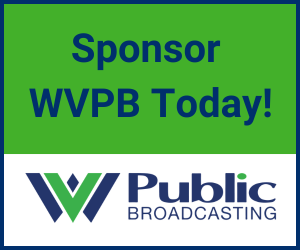The West Virginia Board of Education had a full agenda at their regular meeting Wednesday morning after the cancellation of their meeting in September, “due to a scheduling conflict involving ongoing litigation.” The board normally meets on the second Wednesday of every month, but the October meeting was moved up for the same reason of ongoing litigation.
The board and all its members are defendants in a Ritchie County lawsuit to allow religious exemptions to school vaccine requirements. The West Virginia Supreme Court of Appeals also issued a scheduling order for written arguments in the Ritchie County case, West Virginia Board of Education, et al. v. Miranda G.
The lawsuits and the vaccine question were not on the agenda, but board president Paul Hardesty did take time at the top of the meeting to make a statement regarding the greatest issues facing West Virginia’s public schools, namely school finances. He started by presenting a new copy of state code that board members received that morning, pointing out that only the legislature can adjust the school aid formula and other laws related to school management.
“Ladies and gentlemen, I assure you, the author of that book is not the West Virginia Board of Education, nor the West Virginia Department of Education,” Hardesty said. “This is a book of school law created by legislators past, present and hopefully in the future, right across the way, every law in this book was passed by a legislature, a bicameral legislature, not this board, not the department.”
His overarching point was that the board is limited by state code in its ability to address larger systemic issues such as declining enrollment and the need for school closures and consolidations.
Hardesty then turned his attention to school choice, saying the concept was a wonderful thing. But he argued that groups like the American Legislative Exchange Council (ALEC) that have promoted programs like the Hope Scholarship nationally have been heavy handed, resulting in unintended consequences.
“They make it perfectly clear, and you gotta remember, this is a business community that’s come together to create this playbook, and they feel like the only way that they can accomplish what they want to do is to decimate public education,” Hardesty said. “And how do you do that? You do it financially. If you bankrupt the school system, change can occur. That’s why you see this staggering decline in enrollment in West Virginia. In the past decade, we have lost over 35,000 students in public education all in the name of school choice.”
Hardesty pointed out that while the legislature has made changes to state code to incorporate the school choice model, no changes have been made to the funding cycle of public schools, leading to growing financial instability.
“For full disclosure, I have family members who have children that utilize the Hope Scholarship,” Hardesty said. “It’s a good thing, but it has no guardrails. The cost has grown exponentially. Be out of control, and members of the legislature privately told me that, hey, this has gotten too big too fast, and we can’t control it, but they have no remedy.”
Hardesty reiterated that there’s nothing wrong with school choice, but said the choices have to be fair and equitable. He illustrated his point by laying out side by side the requirements in state law for public education – represented by the new copy of state code – versus the requirements for public charter schools – a single sheet of paper – and homeschooling, represented by an index card.
“I’m not trying to pick a fight, but I am sick and tired of legislators going and piling on this board, piling on this department, telling us how wrong we are and we shouldn’t close these schools,” Hardesty said. “You all made the law, not I. This is what you made for public charters. This is what you made for home school. Ladies and gentlemen, you tell me, are the options fair and equitable? Which one is designed to fail and which one is not?”
Hardesty was adamant that if lawmakers want to seek a solution, he, the board and the Department of Education would be willing partners.
“But I’m going to tell you now, if you’re not willing to get into the school aid formula in chapter 18a, don’t waste my time and don’t waste your time, because that’s the only two places that you can get in this book and find fixes that are substantive and that will last, and that will save all three options.”
Balanced Scorecard
State superintendent Michele Blatt presented a brief overview of the West Virginia Balance Score card results, highlighting some of the state’s successes over the last year.
“When you look at our balanced scorecard, 86% of our districts improved in their English language arts performance indicator, 83% of our districts improved in the mathematics performance indicator, and we saw a 76% reduction in our chronic absenteeism measure,” she said. “The hard work is taking place out in our counties and our schools, and we want to celebrate that.”
Chronic absenteeism is defined as missing 10 percent of the school year or more, which amounts to 18 days. During the 2022-2023 school year, a third of all students in West Virginia were considered chronically absent, reflecting a rising national trend. The September report shows that number is now down to 22.76%.
Charter School Vaccine Policy
School vaccine requirements did merit one mention during the meeting when outgoing board member Debra Sullivan asked whether the state’s Professional Charter School Board (PCSB) had formally responded to the state board’s August letter asking it to comply with existing state vaccine laws.
The PCSB announced at its meeting Aug. 7 that it would advise schools to follow Gov. Patrick Morrisey’s executive order and accept religious and philosophical vaccine exemptions certified by the state Board of Health.
The PCSB is separate from the West Virginia Department of Education (DOE) but it, and the charter schools it authorizes, are subject to the general supervision of the BOE.
“I think that the charter school board is under the auspices or jurisdiction of this board, and I’d like to think that there would be some formal action taken on their part to inform you and us what they did as a group,” Sullivan said.
Blatt said that while she was not aware of any response from the PCSB, conversations with individual charter schools indicated that many are not accepting religious exemptions.
County Boards Accountability
Alexandra Criner, director of the Office of Accountability for the West Virginia Department of Education, presented the Annual County Board of Education Accountability Report. The annual report serves as an overview of each school district’s operational efficiency and performance indicators, providing the public with a better understanding of their local schools’ strengths and challenges.
“This year, nearly half of all counties met requirements for all the operational effectiveness indicators,” she said “However, transportation finance, County Board of Education, member effectiveness and facilities were common areas in which counties were designated as needing assistance. These counties will be required to create and implement a corrective action plan to address identified operational challenges.”
Echoing Hardesty’s opening commentary, Sullivan questioned the lack of data from charter schools in the report.
“Going back to a previous statement that the charter public school board is under the auspices of the state Board of Education, would it not seem that the charter school board should put together a report for this board that details their progress on all these indicators, such as finance?” Sullivan asked.
Criner told Sullivan that much of the data she was looking for, such as enrollment numbers and information about facilities for physical charter schools was included in the September Balanced Scorecard report.
“I think this board deserves more data from the charter school board one the process that’s going on,” Sullivan said. “That’s just a suggestion.”
Sullivan Departs
Board members also took time at the end of the meeting to say farewell to Sullivan, who completed her term as the longest-serving member on the current board Wednesday. She was appointed by Gov. Jim Justice to a nine-year term beginning in November 2017.
Sullivan was known for her attention to detail, often asking precise questions about the methodology of surveys and studies and their resulting data.
“I’ve asked a lot of questions during our meetings, and I don’t apologize for doing so,” she said in her parting remarks. “I was asking on behalf of students and staff in our schools, for parents and communities, I asked questions that I believe the public might want answered, to clarify what was under discussion, or to offer different ways of looking at things.”
Several board members thanked Sullivan for her attention to detail and her passion for keeping them and the public informed.

























